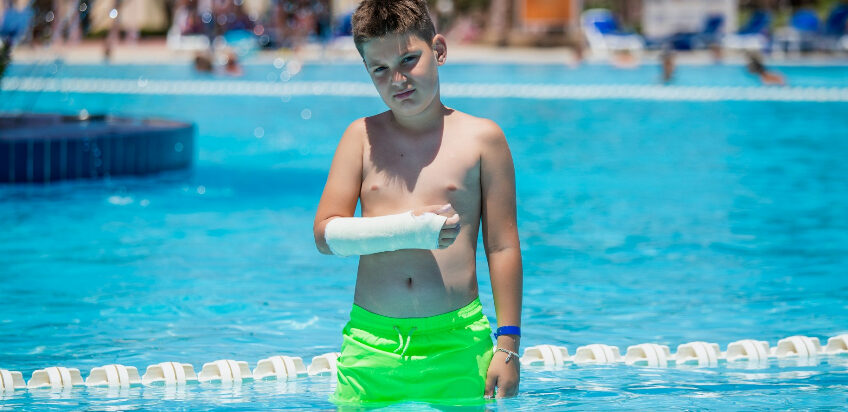Swimming pools are a popular way to cool off and spend time with family during New Jersey’s warm months, but they also pose serious safety risks. Drowning is one of the leading causes of accidental death for children, and pool-related injuries can be devastating for victims of all ages. When accidents occur, questions quickly arise about who is legally responsible. Understanding the laws governing swimming pool safety and liability is essential for victims and their families.
Common Causes of Swimming Pool Accidents
Swimming pool accidents can happen in both public and private settings and may involve:
- Lack of Supervision – Children can drown in seconds when not properly monitored.
- Defective Gates or Fences – New Jersey law requires pools to be enclosed by barriers to prevent unsupervised access.
- Slippery Surfaces – Wet decks can cause slip and fall accidents.
- Faulty Drains or Equipment – Broken drain covers can create dangerous suction, trapping swimmers underwater.
- Diving Accidents – Shallow water or lack of No Diving signs can lead to spinal cord injuries.
- Inadequate Lifeguards – Public pools must provide qualified lifeguards who are properly trained and attentive.
Each of these scenarios can form the basis for a premises liability or negligence claim.
Property Owners’ Legal Responsibilities
In New Jersey, pool owners have a duty to keep their property reasonably safe for guests and lawful visitors. For private homeowners, this means installing fencing that meets state and local building codes, maintaining clear water, repairing broken equipment, and warning guests of known dangers.
For public or commercial pools—such as those at hotels, gyms, or community centers—the responsibility is even greater. These facilities must comply with health and safety regulations, post warning signs, and employ properly certified lifeguards during operating hours.
Failure to meet these obligations may constitute negligence, making the owner legally responsible for injuries or deaths that occur.
Liability for Drowning and Injuries
To recover compensation, an injured person or surviving family member must typically prove that:
- The property owner or operator had a duty of care.
- They breached that duty by failing to maintain safe conditions or provide proper supervision.
- This breach directly caused the injury or death.
- The victim suffered damages as a result.
Liability may also extend to third parties, such as pool maintenance companies, lifeguard contractors, or equipment manufacturers if their negligence contributed to the accident.
Wrongful Death and Survival Actions
When a drowning results in death, surviving family members may file a wrongful death claim seeking damages for funeral expenses, loss of financial support, and loss of companionship. In addition, a survival action can recover compensation for the pain and suffering the victim experienced before passing away. These cases are emotionally difficult and legally complex, making timely legal representation critical.
Steps to Take After a Pool Accident
If you or a loved one is involved in a pool accident:
- Seek immediate medical attention.
- Report the incident to the property owner or facility manager.
- Document the scene with photos and gather witness information.
- Request copies of incident reports or surveillance footage.
- Contact an experienced attorney as soon as possible to preserve evidence and meet legal deadlines.
Conclusion
Swimming pool accidents and drowning cases are tragic events that often involve preventable hazards. New Jersey law holds property owners and operators accountable when they fail to keep pools safe or provide adequate supervision. For victims and families, pursuing legal action can provide financial relief and encourage safer practices in the future. Consulting a skilled premises liability attorney ensures that your rights are protected and that you pursue the full compensation you deserve.
